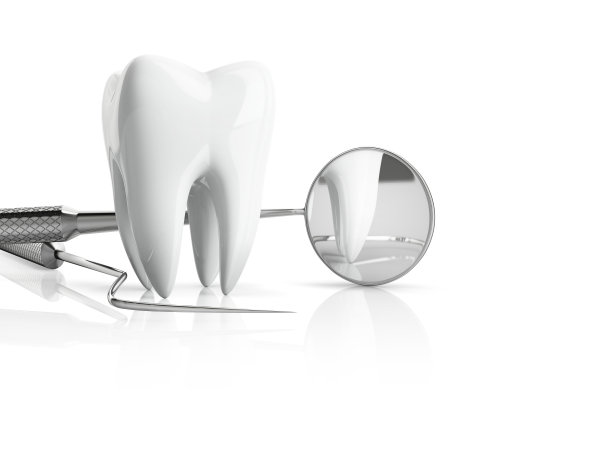Summary: Dental fillings are a common procedure aimed at restoring the integrity and function of teeth, yet several considerations must be taken into account to ensure their long-term success. This article explores essential precautions such as understanding the different types of dental fillings, evaluating personal oral health, discussing options with your dentist, and ensuring proper aftercare. By being informed and prepared, patients can not only enhance the effectiveness of the dental filling but also promote overall oral health for years to come.
1. Understanding Different Types of Dental Fillings

Before undergoing a dental filling procedure, it is critical to understand the various types available. From amalgam fillings to composite resins, each material offers distinct advantages and disadvantages. Amalgam fillings, which are durable and cost-effective, are often preferred for back teeth, while composite resins provide a more aesthetically pleasing solution for visible areas.
Another popular option is porcelain fillings, which not only blend seamlessly with natural teeth but are also incredibly strong. However, they tend to come with a higher price tag compared to other materials. Understanding these differences will ensure you make a well-informed choice that best suits your dental needs and lifestyle.
Additionally, individuals with allergies or sensitivities to certain materials should consult their dentist about safe alternatives. A comprehensive discussion on these aspects can greatly enhance the outcome of the dental filling process.
2. Evaluating Personal Oral Health Conditions
Your current oral health plays a pivotal role in the success of dental fillings. Prior to the procedure, a thorough dental examination is recommended to assess existing issues such as gum disease, tooth decay, or any other underlying conditions that could compromise the fillings effectiveness.
If gum disease is present, it must be treated beforehand as it may lead to tooth loss, adversely affecting the fillings longevity. Regular dental check-ups and cleanings are essential to maintain optimal oral health, ensuring that fillings can serve their purpose without being jeopardized by other dental issues.
Moreover, individuals should also consider their habits, such as bruxism (teeth grinding), which can place extra stress on fillings, leading to premature wear or breakage. Addressing these personal concerns upfront can minimize complications after the treatment.
3. Discussing Options with Your Dentist
A productive dialogue with your dentist is crucial before undergoing any dental filling procedure. Dentists can provide valuable insights based on your specific dental condition and personal preferences. For instance, some patients may prioritize aesthetics, while others may focus on durability or affordability in selecting filling materials.
During the consultation, don’t hesitate to ask questions about the procedure, expected outcomes, risks, and potential complications associated with each filling material. Additionally, discussing anesthesia options can alleviate any fears or concerns about discomfort during the procedure.
Being transparent about prior dental experiences can also help your dentist tailor the treatment to better suit your needs. Establishing a solid relationship built on trust and communication can significantly enhance your comfort level and the procedures success.
4. Ensuring Proper Aftercare Post-Procedure
Aftercare is a fundamental aspect of maintaining the effectiveness of dental fillings. Following the procedure, patients should heed their dentists advice regarding food choices and oral hygiene practices. For instance, it is often recommended that patients avoid biting on hard foods or sweets for a specified duration to allow the filling to properly set.
Furthermore, proper oral hygiene is vital. Brushing at least twice a day and flossing daily can help prevent decay around the filling. Regular dental visits for cleanings and check-ups should also not be neglected, as these will aid in identifying any issues at an early stage.
Finally, being mindful of habits like teeth grinding, excessive consumption of acidic foods or beverages, and smoking can significantly influence the longevity of dental fillings. Taking proactive measures in these areas will contribute to successful long-term oral health.
Summary:
In conclusion, being well-prepared and informed is paramount to ensuring the success of dental fillings. Understanding the types of fillings available, assessing one’s oral health, having comprehensive discussions with your dentist, and adhering to proper aftercare can make all the difference in maintaining oral health and the longevity of dental fillings. Investing time and effort into these considerations will ultimately pay off, resulting in a healthier mouth.
This article is compiled by Vickong Dental and the content is for reference only.
Vickong Dental
Vickong Dental is a large medical group established in Hong Kong in 2008 by professors from well-known medical universities in Guangdong and Hong Kong, as well as medical doctors from key national '985' universities (including Master's supervisors and senior professors). The chain of branches brings together expert dentists with PhDs and Master's degrees from Hong Kong and Mainland China, committed to providing high-quality dental treatment.
"Vickong Dental Practices the University Motto of 'Healing and Serving Society,' with a Stable Operation for Sixteen Years. It Has Been honored with Hong Kong Enterprise Leaders's Choice,' and is a Global Trusted Implant Center for the Nobel Implant System. Recommended by Hong Kong Metro Broadcast and Guangdong Television, it Serves Customers from Over Thirty Countries and Regions, Gaining the Trust and Favor of Citizens from the Guangdong-Hong Kong-Macau Greater Bay Area and Surrounding Cities.

Thousands of customers' unanimous praise
The most recognized and highly recommended dental service by customers in the Guangdong-Hong Kong-Macau Greater Bay Area
We Ensure You Receive Detailed Care and Attention Here
Hong Kong standards, Shenzhen prices, Your Trusted English-speaking dentists

Vickong Dental Medical-Grade Instrument Disinfection Process
Vickong Dental Medical-Grade Instrument Disinfection Process

Vickong Dental Chain: A Warm and Comfortable Environment for Treatment






Appointment Hours

Q&A
Why choose Vickong Dental?
Vickong Dental practices the university motto 「Medicine to Benefit Society」, with each branch bringing together highly qualified dentists with doctoral and master’s degrees from Hong Kong and the Mainland, and has maintained seventeen years of steady operation。Recipient of 「2024 Hong Kong Enterprise Leaders Brand」, 「2025 Hong Kong Enterprise Leaders Brand」, a Nobel Biocare Global Trusted Implant Center, and a brand recommended by Metro Radio Hong Kong and Guangdong TV。
To date, we have served customers from more than thirty countries and regions,earning exceptionally high word-of-mouth recognition and trusted recommendations from residents across the Guangdong-Hong Kong-Macao Greater Bay Area and surrounding cities
We have eight major branches in Zhuhai、Shenzhen,and a consultation and service assurance center in Hong Kong,so you can book a free consultation at any time for any questions,which is very reassuring.
If I do not accept the quotation after the CT scan, will I be charged??
No! As long as the actual treatment has not started, you will not be charged any fees.
Will there be any additional charges during the treatment process?
No, there won’t be any additional charges. Before treatment begins, we will clearly explain the treatment plan and its corresponding fees. Only after the patient agrees and signs the consent form will we proceed with the dental service.
Can I pay in Hong Kong dollars?
Yes. Vickong Dental accepts payment in Hong Kong dollars. The amount will be converted based on the exchange rate of the day, and the applicable rate will be clearly communicated to you in advance.
Can I reschedule my appointment at any time?
Yes. Please contact us via **WeChat** or **WhatsApp** as early as possible, providing your original appointment time and details, along with your preferred new date and time slot for rescheduling.













